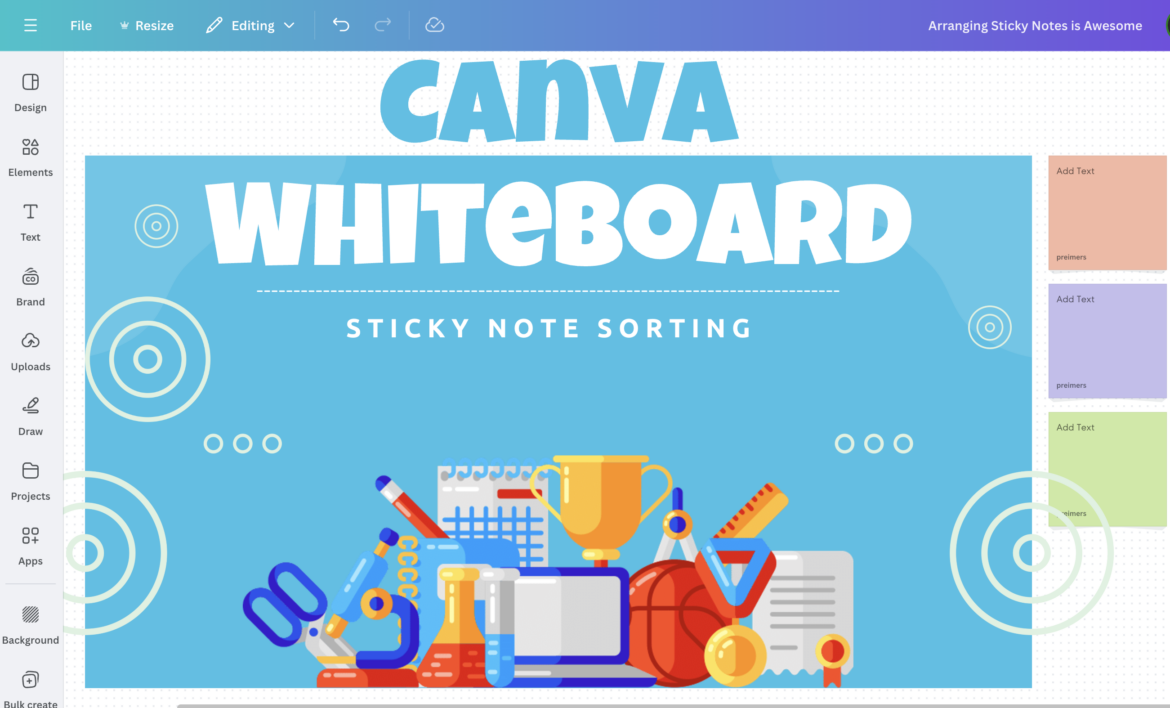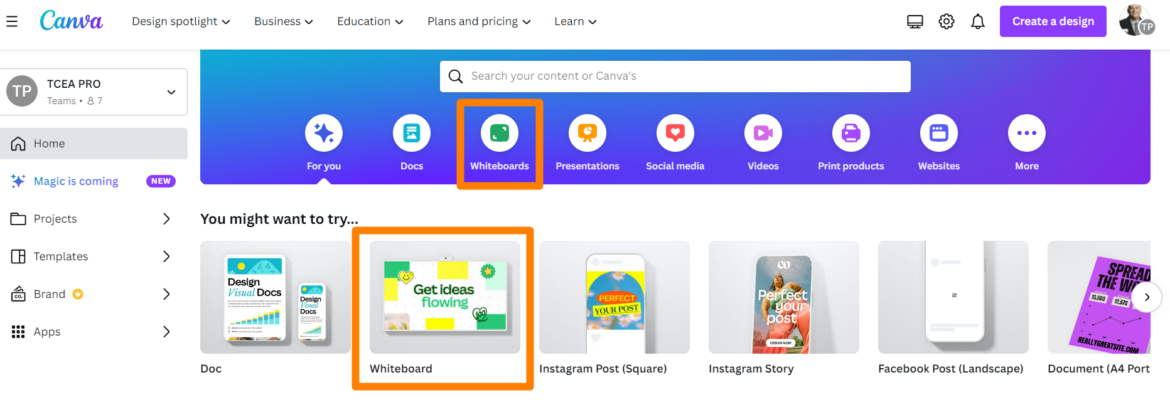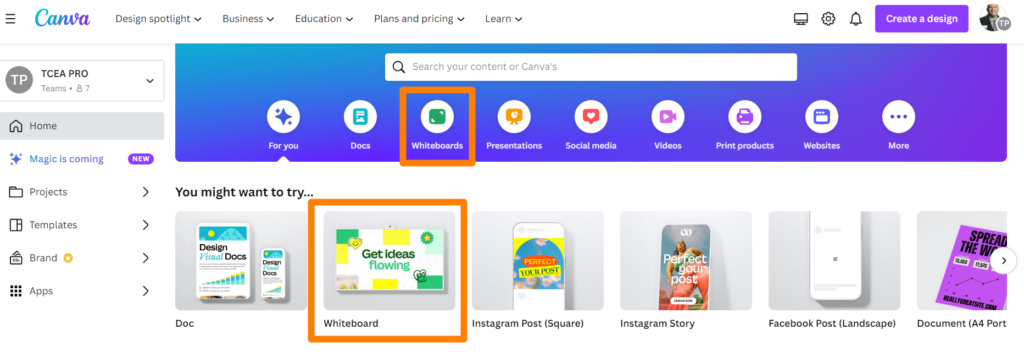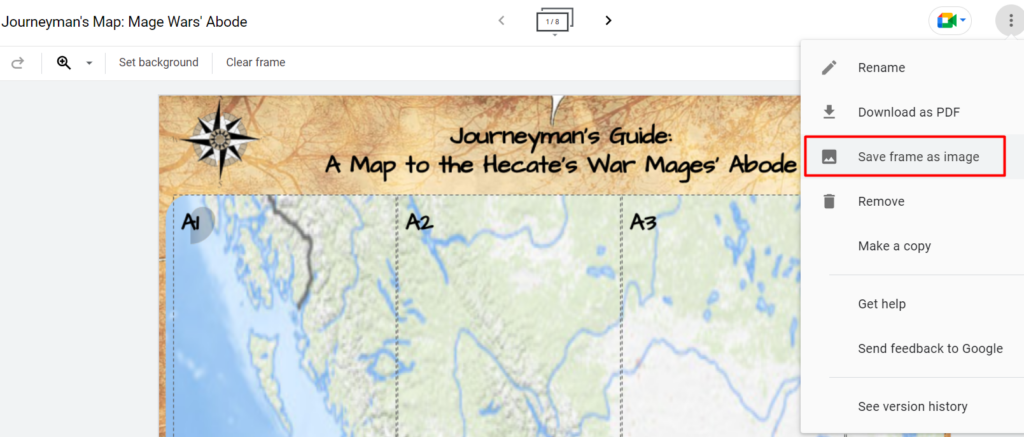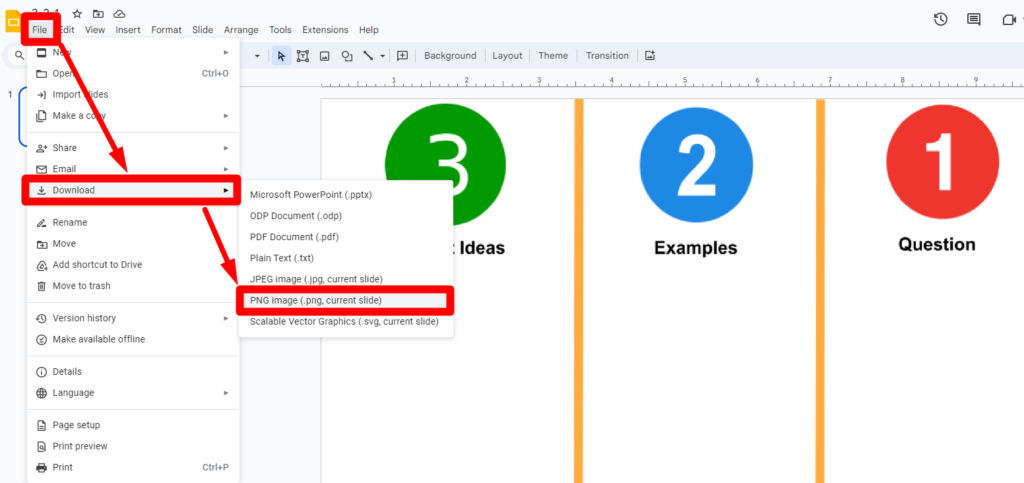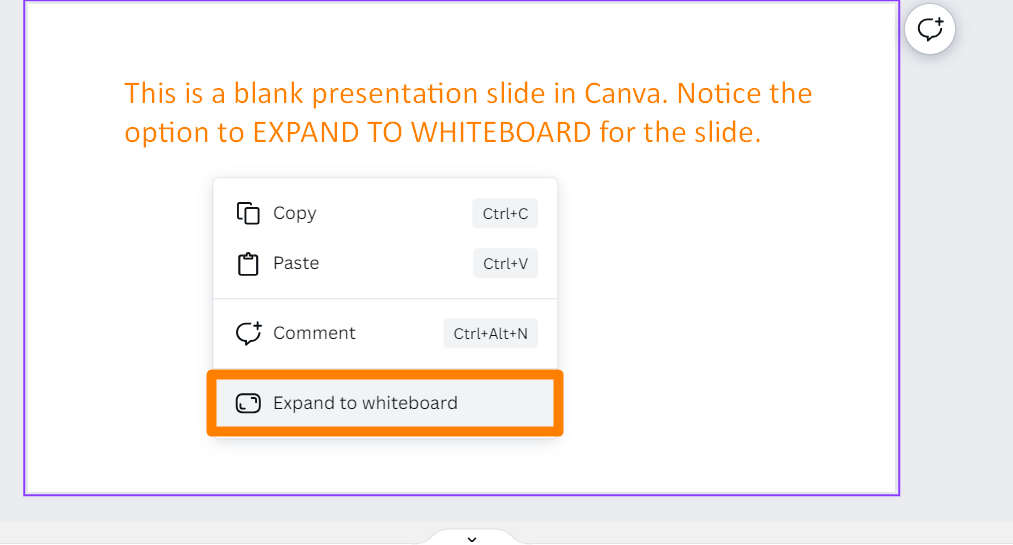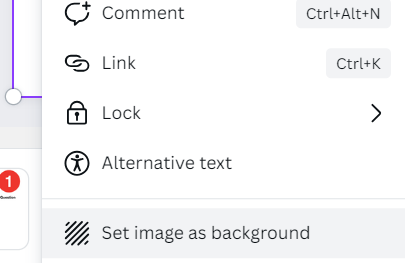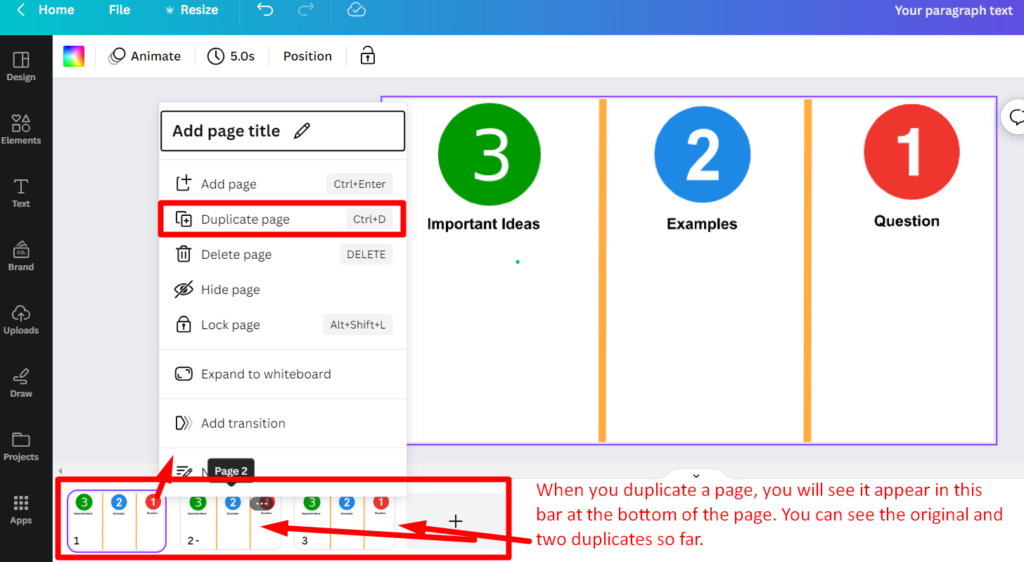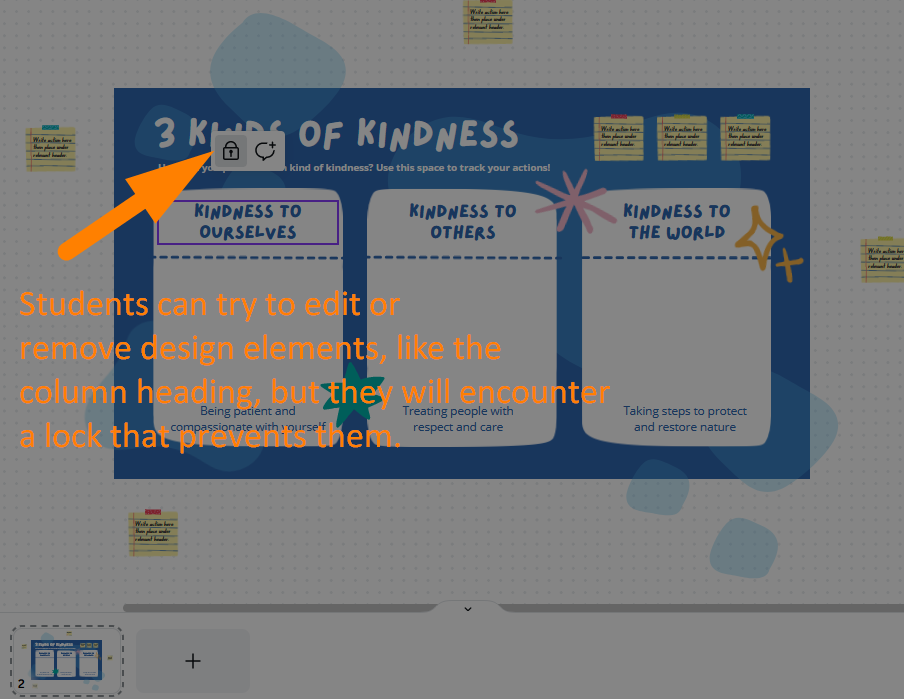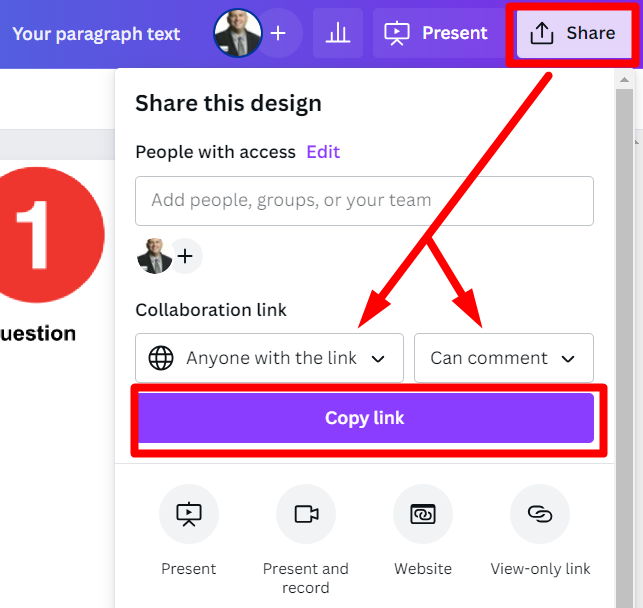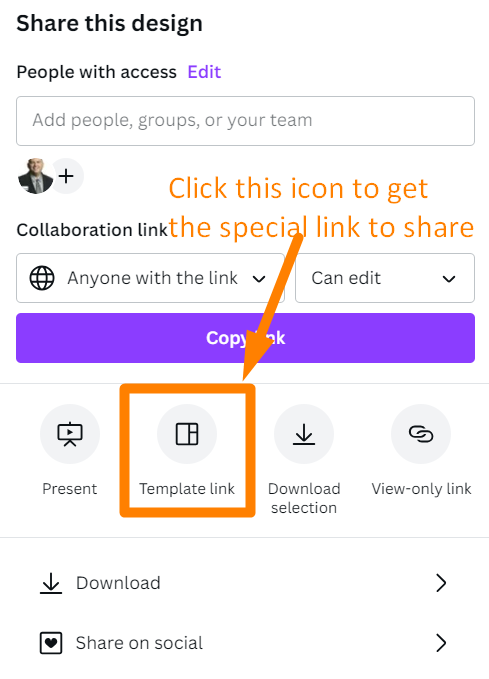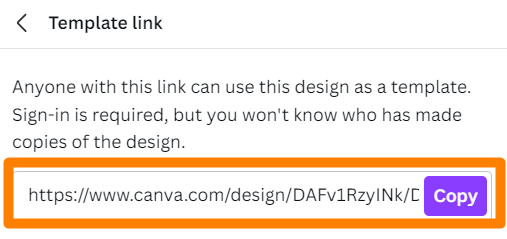Calling all Canva Educator Users! I bet you are ALREADY using Canva to create presentations because the elements are JUST so unbeatable. The close second thing on my “I LOVE CANVA” list is the thousands of educational templates available that you can modify with a click of a mouse. The third thing on my list is the Canva Whiteboard feature. For a basic rundown of this collaborative space, please check out my colleague Miguel Guhlin’s blog.
Canva Whiteboard Basics
A Canva Whiteboard is a collaborative space that offers infinite room to brainstorm, plan projects, or create interactive and visually appealing educational content . It includes the following features:
- Real-time cursors
- Timers
- Sticky notes
- Images
- Video
- Audio
- Stickers
The BIG NEWS!
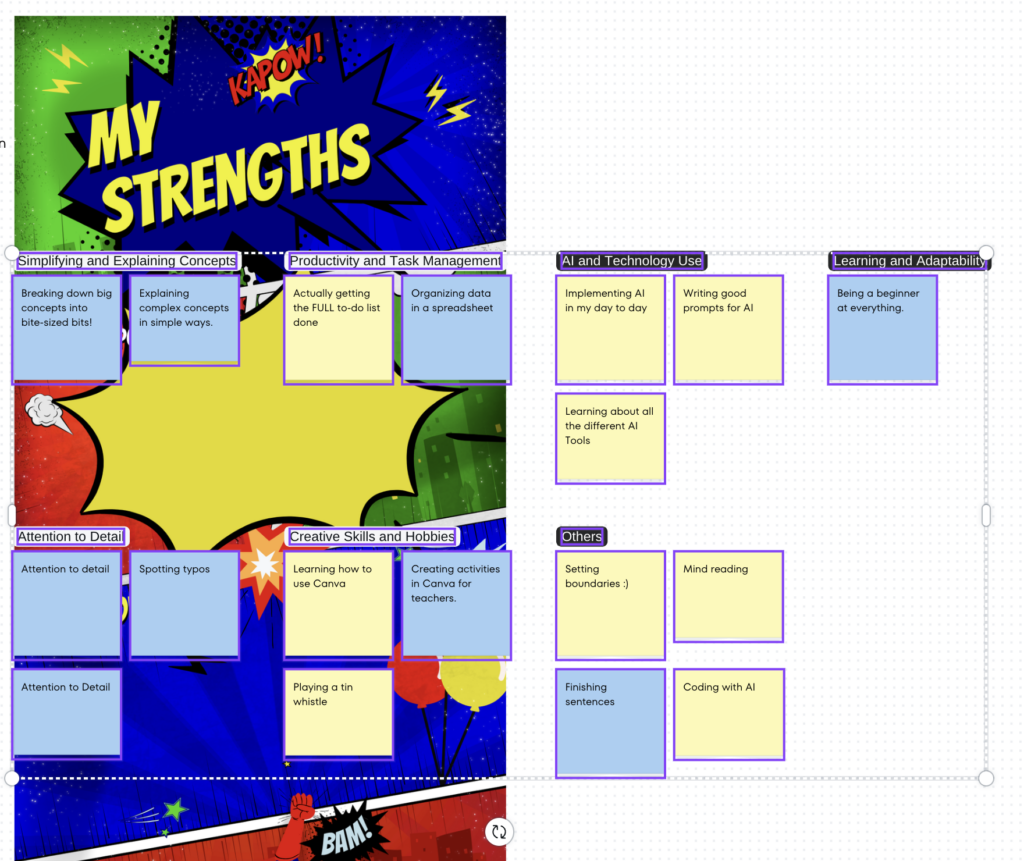
You can sort the sticky notes on a Canva Whiteboard and you have several options:
- By color: Organizes sticky notes based on their color
- By name: Arranges sticky notes alphabetically by their title or content
- By topic: Groups sticky notes according to their subject or theme
- By reactions: Sorts sticky notes based on the reactions or feedback they have received
These options help you keep your whiteboard organized and make it easier to find specific notes.
The Steps
- Click and drag to select the sticky notes you want to sort.
- From the toolbar, select Sort.
- Choose from the sorting options:
- By color
- By name
- By topic
- By reactions
Canva Whiteboard’s Summary Form
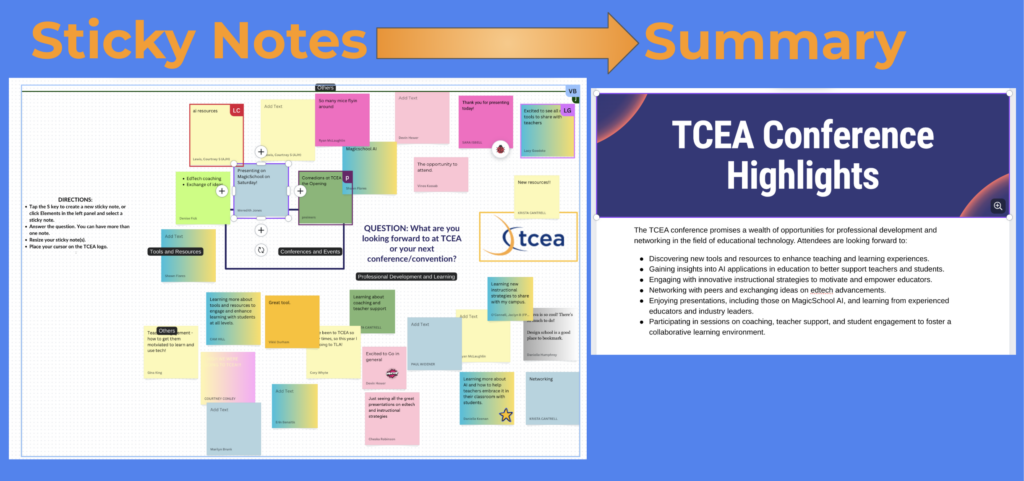
And if that wasn’t enough, you can also create a summary from the sticky notes.
The summary will give you a brief, concise overview of all thes sticky notes posted on the whiteboard. Thanks to Janet Corder for this feature shared in the TCEA Lunch and Learn Smackdown in December of 2024.
The Steps
- Click and drag to select the sticky notes you want to sort
- From the toolbar, select Resize
- Under Magic Switch, choose Transform into Doc
- Click on the ellipsis and select Executive Summary
- Click the purple button, Transform into Doc
- Click the purple button, Open Doc
Try it out today!
Incorporating Canva Whiteboards into your educational toolkit can help you collaborate and brainstorm with your students or colleagues. And if you need to organize those sticky notes in the creative process or in the learning – Canva has you covered.
Featured image courtesy of Grafikonteam, digital content creator for Canva

